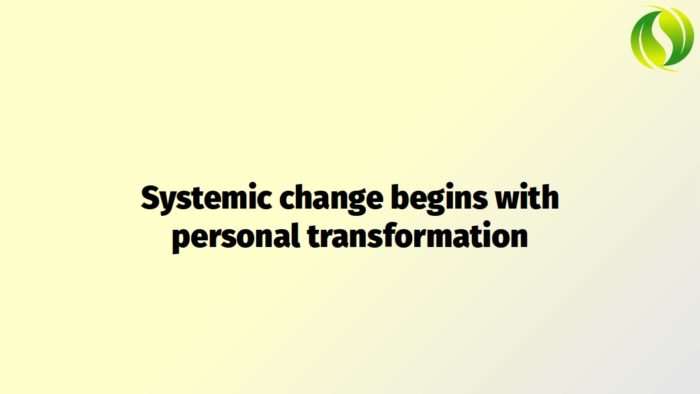Sustainability actions that end up the opposite you expect. Systems don’t work linearly.
Systems work different than you expect if you don’t understand them. People who don’t understand systems often push them in ways that produce the opposite outcome they want. Alternatively, people who understand systems see how to achieve intended results through counterintuitive ways.

Some examples:
Less sugar, more sweet: I used to eat ice cream almost daily. In those days apples tasted bland. Having avoided doof for years, now apples taste sweeter than ice cream did. Vegetables today taste sweeter than fruit used to. I used to consider cauliflower dry and bland. Now it tastes sweet and juicy. At events with food spreads including cauliflower, common for NYU, I often find myself the only one eating the cauliflower.
Similar: Less salt, more salt flavor and less oil, more smooth.
Less refrigeration, more fresh: As I suggested in my letter to the editor of the New Yorker, America’s food and doof system produce more pollution and food waste despite more refrigeration than many places with less refrigeration. One fridge will keep your leftover casserole longer, but refrigeration in general leads to longer supply chains, less fresh food, and more non-food doof things like frozen pizza.
Nearly a third of American households have two fridges. Another result: homogenization of cuisine, less variety, more obesity.
More roads, more congestion: Robert Moses in New York City kept seeing demand for more driving and thought building roads would satisfy the demand. On the contrary, roads induced demand. Systemic effects like this one lead many people today promote solutions I call stepping on the gas, thinking it’s the brake, wanting congratulations. Tragic.
Less work, less meaning: People often think of technology as improving their lives. They’ll point out the washing machine liberated women from onerous, recurring labor. Some technology did. Often it went the other way. Many now see gardening, hunting, and home cooking as luxuries unavailable to many. People tell me they don’t have time to cook with their families (they still have time to stream a lot of videos and post a lot on social media, which I guess they find more valuable than doing things with their children) so order takeout. But cooking doesn’t take long, not knowing how to cook does. Fresh produce isn’t expensive, not knowing how to shop is. We’ve thrown the baby of work that creates meaning, purpose, connection, savings, and health with the bathwater.
More social media, more isolation: People feel like they’re connecting on social media, even when their posting habits lead them to spend more time alone and feel isolated. People sit on the beach scrolling through pictures of other people on beaches, wishing they were somewhere else.
More labor-saving devices and services, less leisure: When I tell people about disconnecting from the electric grid or going without a fridge or other labor-saving devices, people say they don’t have time to go without. They have to buy coffee in disposable cups because they don’t have time to sit and drink it. But the less I use labor-saving devices, the more free time I have. McDonald’s, Starbucks, and Amazon.com impoverish communities of money and time. They extract value.
More travel, less nature: People feel flying brings them to places of natural beauty, but in leading people to believe nature is somewhere else, the travel industry leads people to miss nature where they are. It leads people to tolerate trashing their local environment since they consider it already not pristine, and the place they visit since they’re only visiting it once. Meanwhile they trash nature everywhere in polluting it and homogenize everywhere. Since our ancestors settled in the most fertile, verdant, abundant places, most cities paved them over. Having paved over the most beautiful places, we’re paving over the next most beautiful places.
More travel, less family: People claim they need to fly to see distant family members. One plane will bring you to a family member flying distance away; flying in general led you to live flying distance away. You wouldn’t have lived so far from them if you hadn’t felt you could fly there when you wanted.
More travel, less business: People say they have to fly for work, but flying led businesses to have to compete globally all the time. I’ll bet that as you read these words there are people from New York flying to Los Angeles to provide some good or service while people from Los Angeles are flying to New York to provide that good or service, when both could have provided it locally without all that pollution.
The biggest one: More efficiency, more waste: Everyone thinks if you make a polluting process more efficient, you’ll reduce pollution. We’ve been chasing efficiency for centuries. Our systems are more efficient than ever, and we’re polluting more than ever. If you make a polluting system more efficient, you pollute more efficiently. You may lower pollution in one area, but you accelerate the system and thereby all its extraction and pollution overall.
What matters is overall pollution, which blindly applying efficiency increases. What works: change the values and goals of the system. That’s what I do and I help the people I lead do.
Read my weekly newsletter

On initiative, leadership, the environment, and burpees